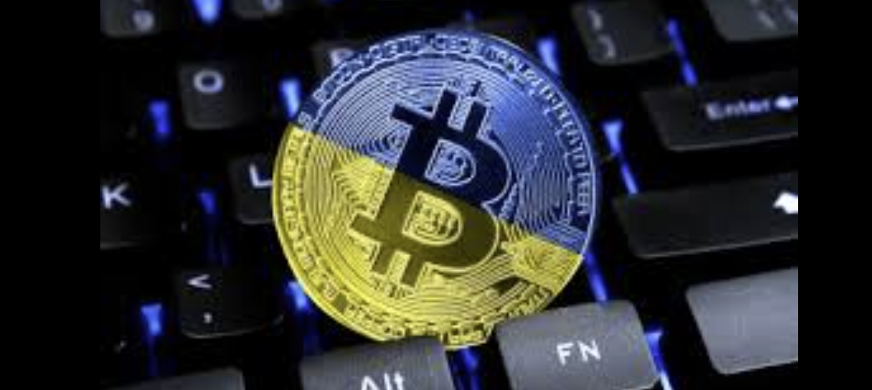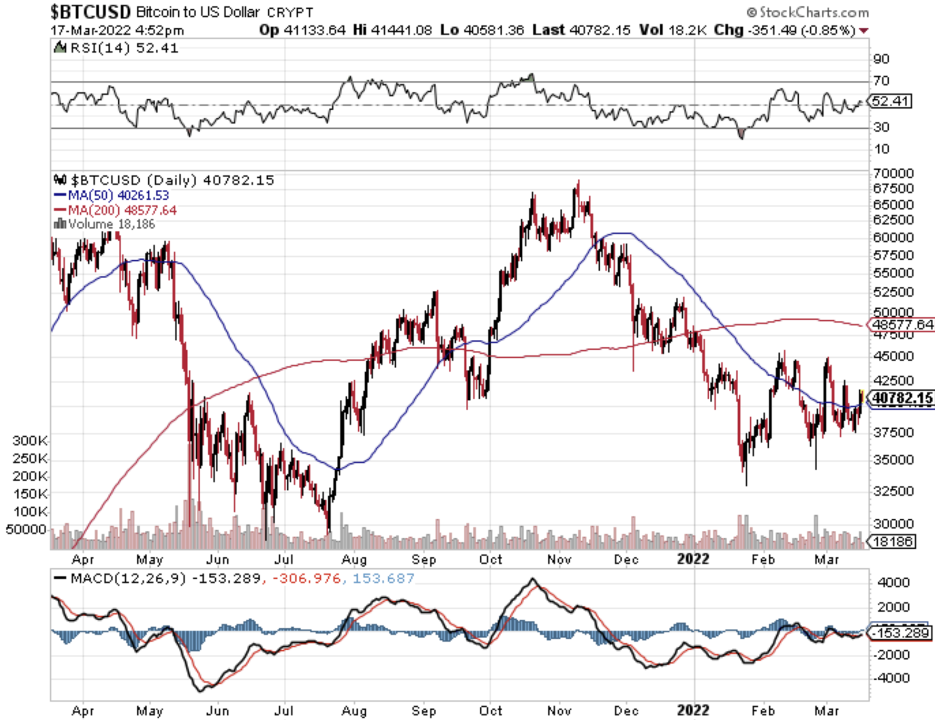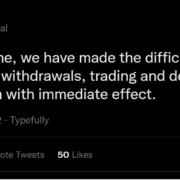Bitcoin Set Up Well for the Long Term
Whether you are in it for the money or in it for the tech, many have earmarked asset appreciation as a pillar of their current and future growth.
Step one is just owning crypto.
Speaking for many Americans on the grind and eking out an existence, you guessed it right, many are in the same boat.
If faced with a crisis, financially many would say they are royally screwed.
Bank rates aren’t up to snuff, and it just seems the government is giving the people a raw deal constantly.
Then look across the Atlantic and the climate doesn’t look all that fantastic either.
I could easily argue that the latest military action in the east of Europe has triggered alarm bells not just here at home but in rich and poor countries around the world as well.
Foreign investors look at the confiscation of US dollar reserves and freezing of assets in Europe and ask themselves, am I next?
I understand that the Western government feels the urge to go after illicit money, but then what about the rest of the foreign assets that aren’t necessarily all that clean either, do they get wiped out as well?
The reaction to foreign assets and their protection could trigger a massive pivot to cryptocurrency and bitcoin because unprecedented action by fiscal authorities could have a long-lasting impact on foreign capital and its direction.
We already have a young generation who is holding hope that crypto can be a lifeline to get out of this endless loop of personal financial tumult.
But crypto is not secure. We all know this. For investors with a budget already, it’s difficult to justify investing into a speculative asset class that failed recent acid tests.
I don’t blame marginal investors if they believe cryptocurrency is still very scammy and hasn’t matured enough to graduate from being priced with a low-quality growth stock.
What’s the solution?
How about donating plasma? Just kidding. But on a serious note, the macro events abroad signal that cryptocurrency absolutely has a role in many people’s lives.
The quality of global governance has gone from bad to worse.
The consequence is widespread panic and chaos that are spilling over into NATO borders.
Granted, refugees don’t have a lot of money to invest right now, but I could easily see young Russians and Ukrainians avoiding fiat currency altogether and preferring to go with crypto once they start earning fiat abroad.
Even fiat can go to zero which each one has over time.
Ask the Romans, their fiat went to zero as well.
Then at a structural level, crypto is starting to establish itself not only in America but in other outposts. For instance when cryptocurrency exchange Binance just announced that it had been granted a license to operate in Dubai, United Arab Emirates. The company’s presence in the Middle East has been building up lately, with a crypto service provider license in another Gulf market, Bahrain, coming in earlier this week.
Under the Dubai virtual asset provider (VASP) license, Binance will be allowed to set up an office in the emirate and provide digital asset exchange services to pre-qualified investors and financial firms under the newly adopted regulatory guidelines.
Both Bahrain and UAE embrace an innovation-friendly approach and compete for the status of the region’s most crypto-supportive jurisdiction.
As much as it’s painful to see one’s local currency blow up in one fell swoop like the Russian Ruble and all the other post-Soviet currencies, the people of these countries must question if they really want to go on the same ride with other Western countries’ fiat when they are debasing the hell out of their currencies every year.
Russians can’t even use their bank cards because MasterCard and Visa cut off service. Will they ever trust these services again?
Over 25% of the current US dollars in existence were printed in the past 2 years and that isn’t necessarily the best vote of confidence for a Russian whose savings dissipated into thin air.
And who wants Chinese yuan?
Not me and the next guy shouldn’t want it either.





